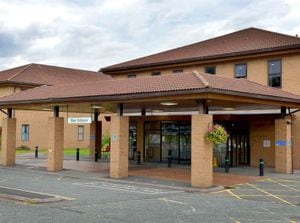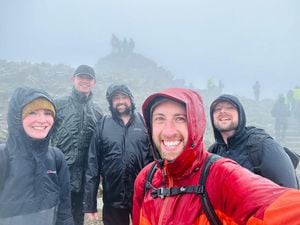Nurse struck-off after medication error which 'could have caused death' of pregnant patient and unborn baby
A nurse who worked at Telford's Princess Royal Hospital has been struck off after ordering a pregnant woman to take medication she was allergic to.

Christine Speake, who was employed as a Sister on the gynaecology ward, was struck-off the Nursing and Midwifery Council (NMC) register after a tribunal heard she told the mother to “just take it” and then tried to cover-up her mistake after the woman suffered a reaction.
A report outlining the findings said the woman – named as patient A – was 11 weeks' pregnant when she was admitted to the hospital suffering from hyperemesis – persistent nausea and vomiting – in January 2019.
Miss Speake gave the patient Buscopan which had been prescribed by a junior doctor, despite her allergy being included in her medical records.
The report says: "Miss Speake did not inform Patient A what medication she was administering, replying ‘Just take it’ when Patient A asked what it was.
"Patient A experienced an allergic reaction as a result of the Buscopan, including vomiting and a rash."
The panel heard that Speake did not take action when Patient A informed her that she was allergic to Buscopan and failed to document the adverse reaction in Patient A’s notes.
Speake handed her resignation into Shrewsbury and Telford Hospital NHS Trust, which runs the hospital, in May 2019.
The report said: "After the initial medicine administration error, Ms Speake became more firmly entrenched in her position of ignoring her training and compounded the administration error by seeking to cover it up.
"This placed Patient A at further and greater risk of ham.
“The potential consequences of this error could have been death to both the patient and her unborn baby.
"If a patient has an anaphylactic reaction to a drug, it can have fatal consequences.”
Speake faced 10 misconduct charges including that she failed to tell the patient what she was dispensing; failed to ask the patient if she had any allergies; failed to check medical records to see if the woman had any allergies and failed to tell colleagues what had happened.
During an investigation by the trust, Speake made some admissions and later made full admissions to the charges.
The NMC said: "The charges cover one incident in many years of clinical practice in which the registrant has been shown to be dishonest and placed a patient at unwarranted risk of harm.
"This has breached fundamental tenets of the nursing profession which in turn has brought the profession into disrepute.
"Whilst it is a lone incident in a long career, it is precisely because Ms Speake has accumulated decades of experience that this incident should not have occurred.
"As a qualified and experienced nurse, who was up to date with her training, there is no identifiable reason why Ms Speake should have failed to follow protocols and policies.
"Her initial failure to follow policies and protocols had resulted in harm to Patient A."
The panel found that Speake’s actions "did fall seriously short of the conduct and standards expected of a nurse or midwife and amounted to serious misconduct".
Speake was struck off, with the report adding: "The panel considered that this order was necessary to mark the importance of maintaining public confidence in the profession, and to send to the public and the profession a clear message about the standard of behaviour required of a registered nurse and midwife."
The Shrewsbury and Telford Hospital NHS Trust has been in special measures since 2018 and is currently subject to a major investigation into baby deaths being lead by maternity expert Donna Ockenden.
Three months after the incident with Patient A, the Care Quality Commission inspected the maternity units in Shrewsbury and Telford and said that staffing was "not adequate" and not sufficient to "keep people safe from avoidable harm".





